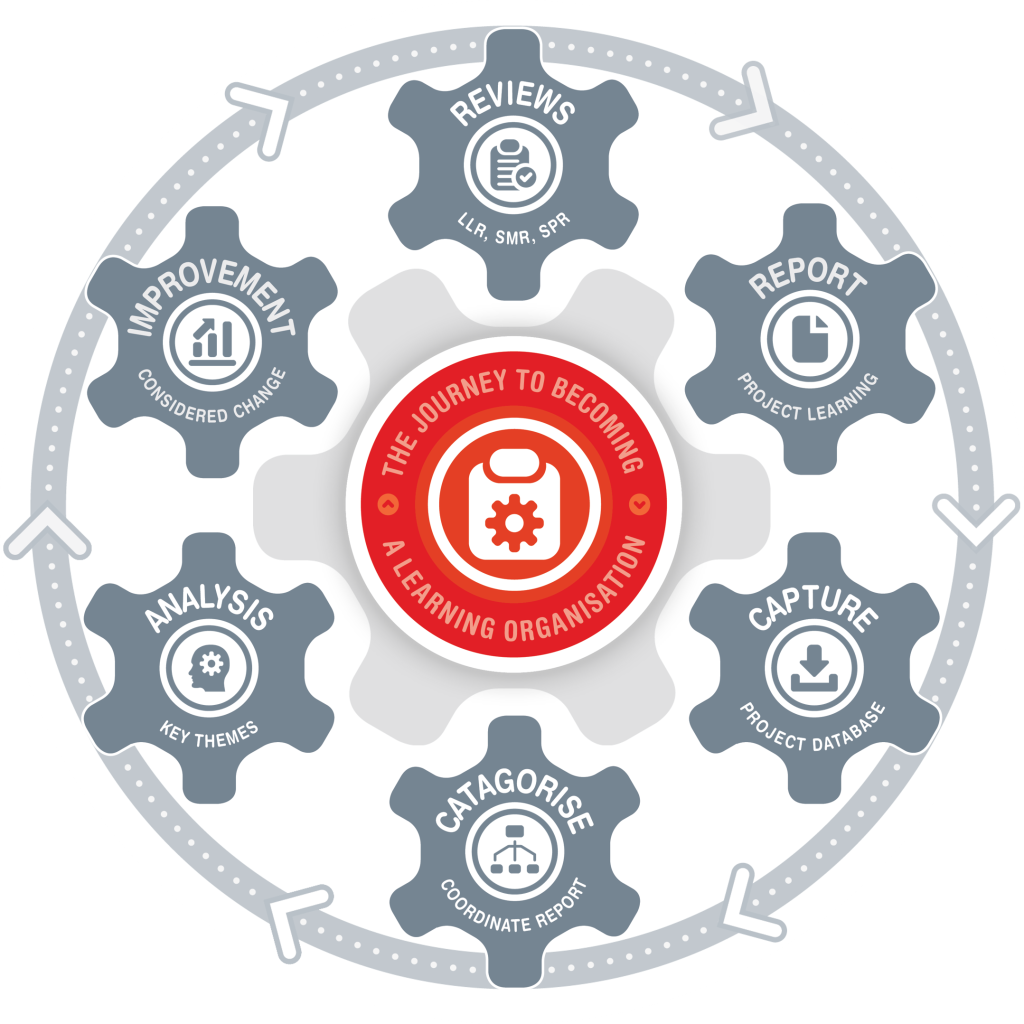 Article written by Peter Martineau – Principal Advisor
Article written by Peter Martineau – Principal Advisor
With increasing pressure on budgets and uncertainty around a number of our large-scale projects and programmes of work we need to look internally for our savings. Projects are costing too much, taking too long and not delivering good value. Productivity in NZ is well behind other OECD countries and its time to ask why and then implement improvements. We are not learning from our mistakes.
As Albert Einstein once said, “doing the same thing over and over again and expecting a different result is the first sign of madness. So, what can we do? A structured approach to reviewing existing projects and how we work is essential. 41South have recently joined the Vitruvius team and bring over 15 years of review experience, reviewing over 300 projects and provide the following insights into the benefits of review and learning from our experiences.
Here is the process we follow –

1. Review to Improvement Cycle
It is essential that we consider the complete Review to Improvement Cycle. We tend to do the first 3 steps well, complete a review, produce a report and capture key improvement opportunities (note not lessons learned) but really struggle with the next steps – – categorise the report, analyse for key themes and making a plan to implement improvements. This means we are learning at a project and personal level but not organisation or industry.
2. Its about much more than a Report
We are often looking for the magic bullet, the report that will fix all our problems. This does not exist. Reviews are as much about pulling teams together, hearing the perspective of others and getting closure as we move to our next project or phase of project. Don’t leave your review to the end of the project!! Do at key stages especially early in the project lifecycle.
3. The different types of Review
Ideally you want a suite of different types of review and contract monitoring. These can include third party reviews using an experienced review team to assess how things are going (an external review) or internal reviews that capture views of the team. Ideally you want both but essential that you have clear process to respond to review findings. One of the biggest frustrations expressed at review workshops is “what’s the point” nothing is ever done with the findings.
4. Better use of Data
Reviews are often used as a tool to find fault or hammer a failing project. We should be supporting projects and need to ensure we are using available data and reporting effectively. Project reporting should be considered a key part of the review cycle.
5. Give everyone a voice (and close out)
It is essential that we give everybody a voice to raise improvement opportunities. Those who feel part of the process and have been listened to will be far more likely to accept and adopt change. Remember, this has a flip side, if a concern is raised and nothing is done, this can be even more frustrating. Ensure the review process includes a feedback loop to close out.
6. Centralise findings
Now we are into the hard stuff! Before you get into reviewing, consider the audience for review findings, how these will be captured and who has the authority, capability and time to affect change. Ideally this should be done at an organisational level and use a combination of good technology and experienced resource.
7. Implement Improvements
We often refer to reviews as “the starting blocks” for change. We still have the race to run! With our findings centralised, who is responsible for confirming and implementing improvements. Important to consider improvements at a number of different levels;
- Process Improvements – changes to process, contract conditions or project management practice
- Reinforcement – just need to do it, alert or advise teams and organisation to reinforce good practice or highlighting not so good
- Key Themes and organisational development – what we are seeing across review and projects. There may be a needs for upskilling at an organisational level.
For more information contact Peter Martineau, Principal Advisor